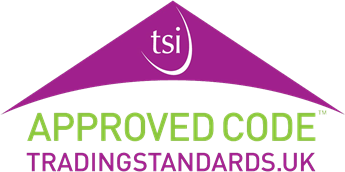
As we head in to mid-summer season landlords are experiencing a settled period for the first time in a while and as such are now able to start looking toward the future with an eye on possible expansion of their portfolio, home improvements and other improvements.
With this in mind, we thought we’d publish some of the most frequently asked questions we get from landlords in order to provide the best advice.
Q. I have a property I’d like to let, do I need to tell my mortgage provider?
In short, yes. The mortgage you have on your current property will be for residential purposes and if you’re going to let it out the chances are that your mortgage provider will either seek to impose some specific restrictions or amendments to your agreement, or they’ll advise you to seek a buy-to-let (BTL) mortgage instead. You definitely need to seek advice from your mortgage company before you start anything else.
Q. How will I know how much rent to charge on my property once I decide to let it?
This is where you’ll need to instruct a reputable letting agent to come and value your home. Once the agents have done a valuation on your property they can then advise the current market rate and you can set your asking price from tenants. They will also be able to tell you how much yield to expect, or more simply, what your annual rent will be as a percentage of the property’s value.
Q. How much does it cost to rent out my property?
It really depends on the level of service you need. We’d recommend having a management company in place that can find your tenants for you and then manage things such as maintenance, rent payments and other admin work that typically isn’t covered by the landlord. The best thing to do is seek advice from a reputable agent and they can let you know what to expect.
Q. What are my obligations to the tenant?
First and foremost you need to ensure that their deposit is protected with an approved Tenancy Deposit Scheme. The law dictates that their money must be held somewhere that is protected in order to resolve any disputes that may arise at the end of the tenancy or things such as rent defaults and damage to the property. It works both ways, with you having legal protection should you need to retain their deposit. You’ll also need to have the tenants sign an inventory of all the white goods, fittings and other features of the house so that, at the end of the tenancy, you have recourse to withhold their deposit should they damage your property.
You will also need to ensure that all gas and electrical appliances are tested to make sure they are safe and in working order before you can rent the property to protect your tenants’ safety. If you’re going through a good and reputable letting agent they should be able to take care of this for you. Further to this you must allow your tenants the right to a peaceful enjoyment of the property, meaning that inspections and other visits to the property are done at reasonable times with plenty of notice.
Q. What is an EPC?
An Energy Performance Certificate, or EPC for short, is a report detailing the energy efficiency of a property. It gives a property an energy efficiency rating from A (most efficient) to G (least efficient) and is valid for 10 years.
All landlords are required to purchase an EPC for a property before they let it and, from 1st April 2018, the property must have a minimum rating of E on its EPC. It will be unlawful to rent a property which breaches this requirement with a penalty of up to £4,000.
We do hope that these answers have been helpful but as always if you have further questions please contact us for further information.




